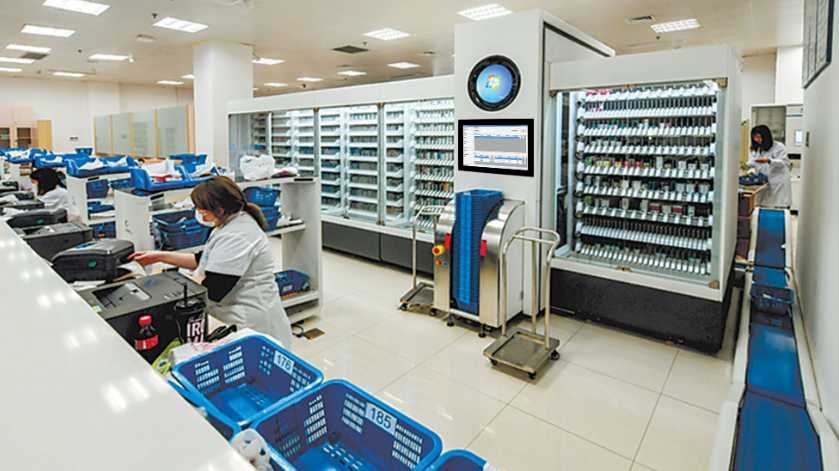Can medicines be purchased, like vending machines, by placing an order directly at a self-service counter to get them immediately when they are needed? In fact, pharmacies that rely on 24-hour operation still do not have sufficient coverage in many cities due to high operating costs, and are unable to provide timely pharmaceutical services to users.
Smart retailing in the pharmaceutical industry
Taking inspiration from beverage vending machines, we relied on smart pharmacy cabinets to promote the application of smart retailing in the pharmaceutical industry.
During the development of the smart medicine cabinet, the core problem of this scenario was how to accurately capture the medicine that the user wanted to buy after the consumer gave the purchase order.
In order to solve this problem, the first step was to solve the problem of recognition. With many different drugs and over 9,000 images, the drug recognition model was tested and trained with an accuracy of 98.64%, and the recognition results were available within 500ms.
After solving the problem of drug identification, the next step is to achieve accurate capture, only the medicine cabinet will identify the drug camera deployed on a mechanical arm in the intelligent medicine cabinet, when finished drug identification, combined with the camera to accurately locate the location of the corresponding drugs in the medicine cabinet, capture and hand the drugs to consumers through the window.
At present, several unmanned medicine cabinets have been used in communities and office buildings, serving consumers more efficiently and conveniently while saving the traditional pharmacy’s operation and maintenance costs such as manpower and rent.
Application of artificial intelligence in other fields
Today, as AI accelerates to the ground, we are able to see AI applications on the ground in a variety of industries.
- In the retail industry, a variety of common fruit and vegetable image data is used to train a fruit and vegetable recognition model with an accuracy of up to 97%, which is deployed on existing electronic weighing equipment through an SDK and combined with real-time camera photography to realise intelligent recognition and settlement in offline fruit and vegetable shops, which takes only 2-3 seconds to complete intelligent cashiering, with an overall increase in efficiency of 15-20 times compared to traditional manual cashiering.
- In the industrial production line, as a result of the conventional luggage production factory before, in order to avoid safety hazards, are required to manually through the X-ray check whether there are missing scissors, needles and other production supplies.
- In the field of safety production, due to the underground track construction and maintenance work, workers need to enter the closed track area of the underground for operation, each operation needs to be prepared before the necessary tools, before and after work need to be manually counted to avoid any tools left out in the underground closed area.
- In addition, in a number of fields such as smart government, internet, transportation and logistics, culture and education, companies can apply AI in a variety of personalised scenarios in a cost effective manner.
